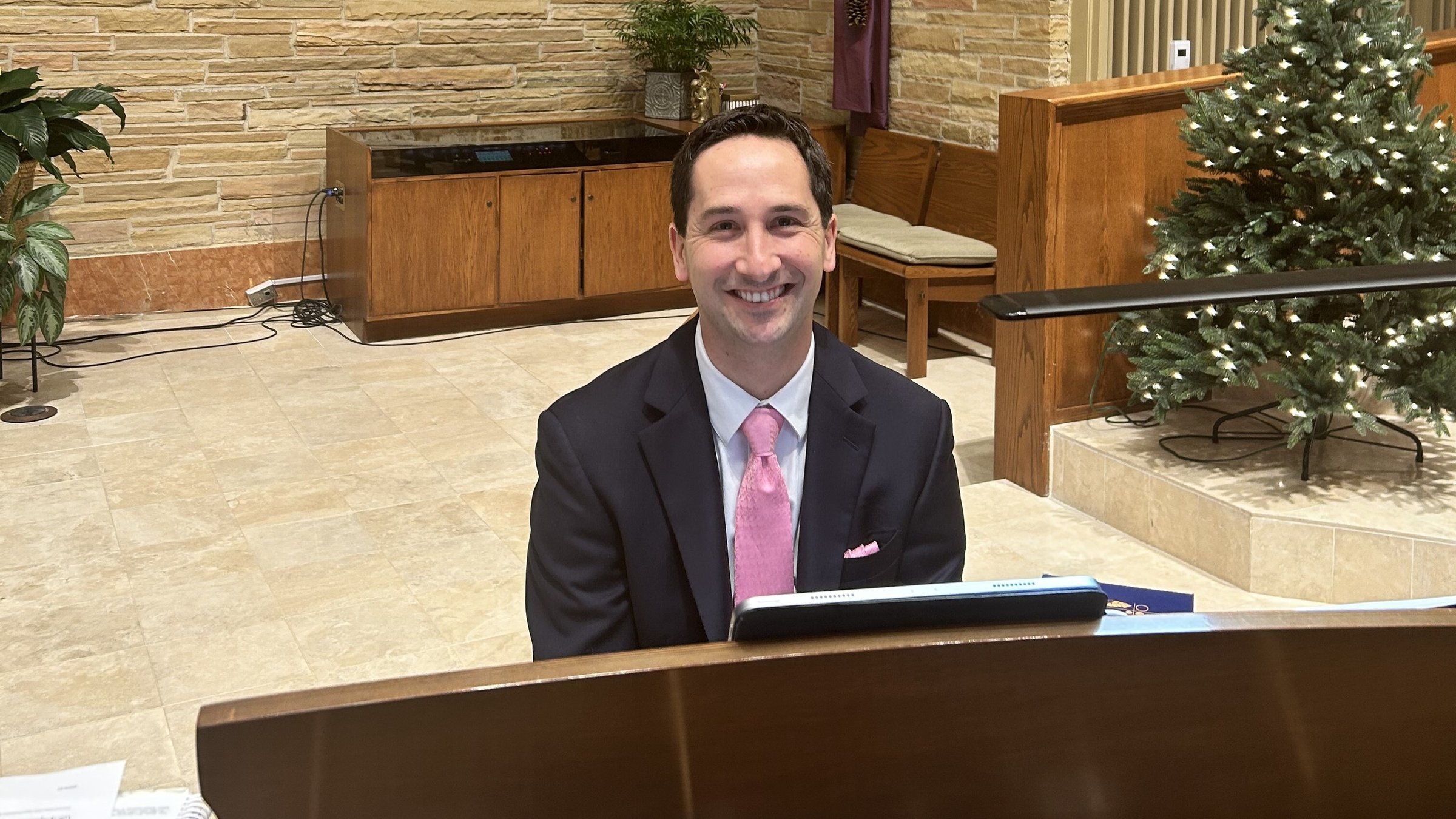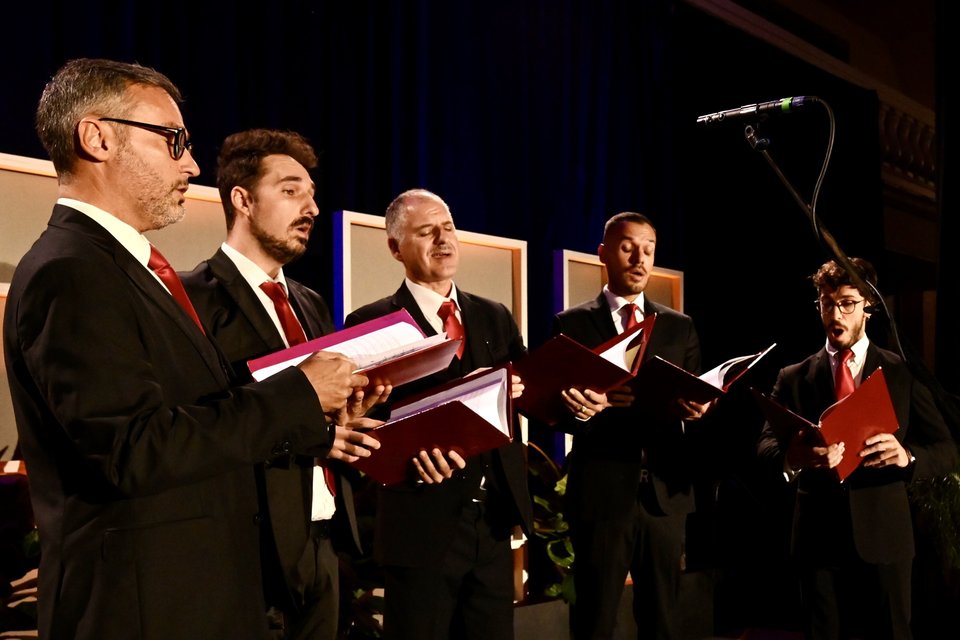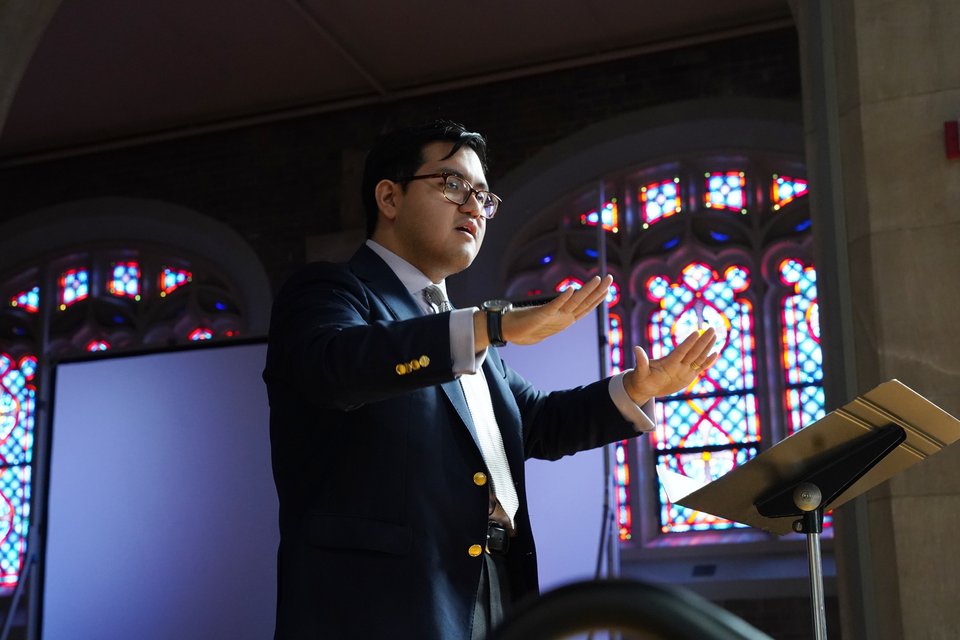Brandon Gauvin wanted to be a concert pianist growing up — but his vocation today as a parish musician is a dream come true
BIRMINGHAM — Brandon Gauvin, the director of liturgical music and worship coordinator at Holy Name Parish in Birmingham, remembers being drawn to music from an early age.
"I have three older sisters, and one of them pulled the rest of us into community theater," said Gauvin, who grew up in Canton and attended public schools. "My dad is an admirer of classical music and dabbles in piano. Just having music in the house, being in the theater and my dad’s love of music, especially Beethoven, inspired me and was the foundation of my journey. My mom supported us in everything we did. My family just liked to sing and dance, and it was always so fun.”
Gauvin's parents made sure their children attended Mass every Sunday and received all their sacraments. It was always something the Gauvins did as a family: they piled into the van and headed to St. Thomas a’Beckett Parish in Canton. When Brandon started playing piano, it came so naturally he eventually enrolled at Wayne State University to study piano. He later switched to organ when he started getting more involved with the church.
“At that time, I thought I was going to be a concert pianist. That was my delusion of grandeur," Gauvin said. "But as I started to look at things more practically, I was already involved in the church and thought there may be opportunities for me professionally.”
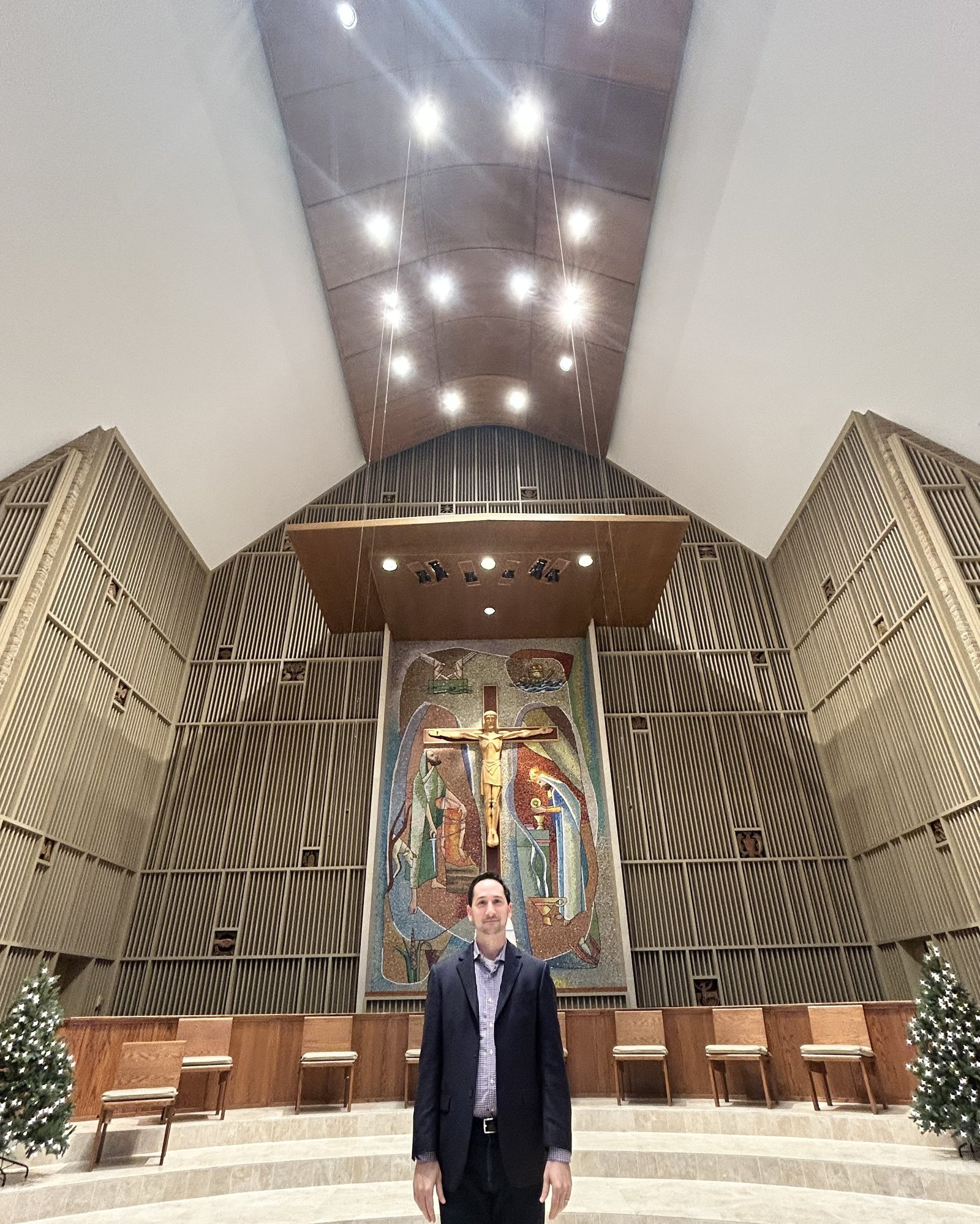
Gauvin's predecessor at Holy Name, Norah Duncan, was chair of the music department at Wayne State University and the former director of music at the Cathedral of the Most Blessed Sacrament. Gauvin saw an opportunity to study with Duncan, and he ended up earning a bachelor’s and master’s degree. He also studied choral conducting at Oakland University, earning a second master’s degree.
“I always say if there was unlimited time and money, I’d love to get masters in everything,” Gauvin said. “I’m just curious and enjoy learning. There are endless things to learn, in my opinion.”
Gauvin’s love of music and his faith were starting to come together when one of his sisters asked him to play at her wedding. He worked hard to get ready for the big day when the pastor, a longtime family friend who presided over the nuptials, asked him to help with the children’s choir at St. Thomas a’Beckett.
It didn’t take long for Brandon to start playing at Mass every week. Before he knew it, he was accompanying the main choir on Sundays, and eventually directing the entire music program at his childhood parish.
“In the back of my mind I knew I always wanted to make a career in music, but knew it could be dicey. I wanted stability more than being a gigging musician," Gauvin said. "When I was leading the musical program at St. Thomas a’Beckett, I was so happy. It felt good that I found my vocation, and it just seemed to fit at the same time.”
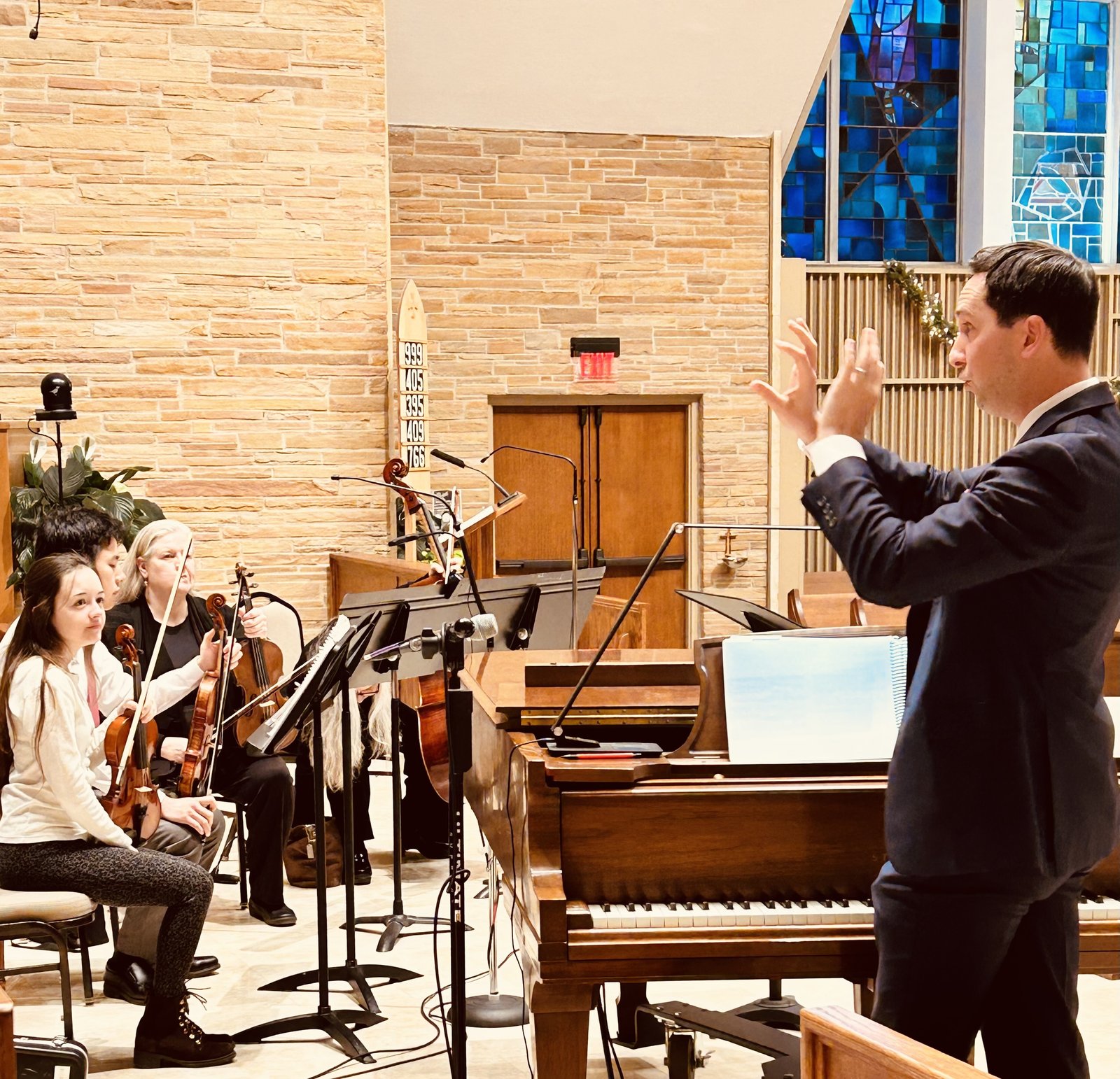
After five years at St. Thomas a’Beckett, Duncan mentioned during an organ session that Holy Name Church was looking for a full-time musician.
“I was really entrenched in the parish. I couldn’t fathom not being at St. Thomas a’Beckett," Gauvin recalled. "Everything was firing on all cylinders, but I also felt like there was room for me to grow. I had a sense (Holy Name) would be a good opportunity for my career and my abilities. I had a sense this was a special place to be.”
Msgr. John Zenz, the priest at Holy Name, met Gauvin when he was practicing for his master’s recital for organ at Holy Name.
“After Mass in the chapel, Monsignor would come out of the sacristy and see me at the organ. We just started a little back and forth and I decided I was interested in the job," Gauvin said.
Once he met with Msgr. Zenz formally, "it wasn't a long interview," Gauvin recalled. "I think even then we shared a like mindedness and had an immediate rapport. It was a big deal getting hired here at the age of 28.”
Gauvin has been at Holy Name for 10 years now. He helps prepare for the all-school Mass on Tuesday mornings, the occasional funeral, choir practice every Wednesday night, as well as the weekend Mass schedule.
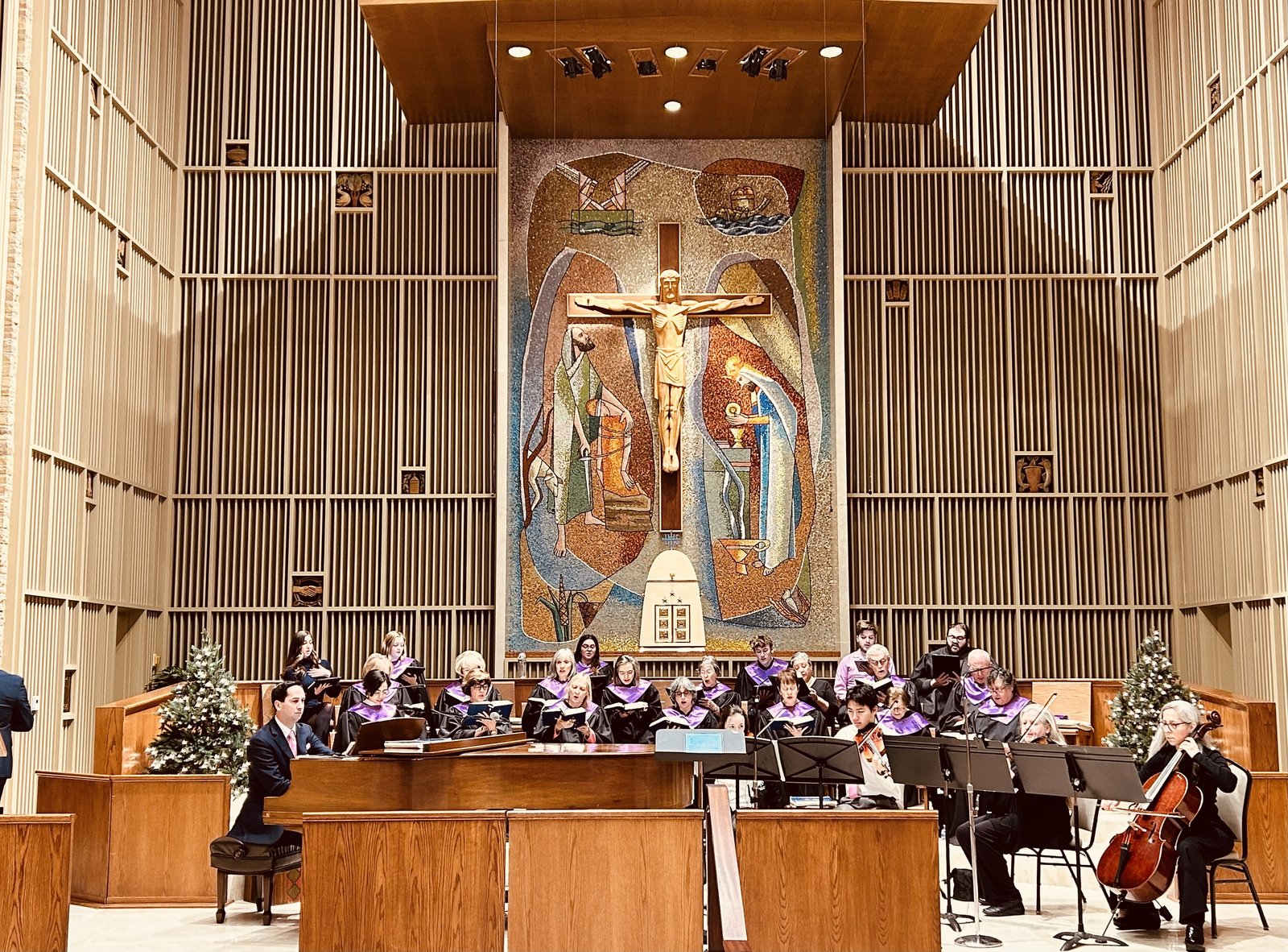
The Holy Name parish choir is made up of parishioners young and old; one member has been singing for 50 years. Mixed in with them are some professional singers with whom Gauvin has been connected in one way or another, either from Wayne State or Oakland University.
“We call them the Holy Name schola, a Latin word for school," Gauvin said. "It’s a tradition that goes back to the earliest days of the Church.”
One of the newest members of the Holy Name choir is Sarah Sosa. She used to sing at the Detroit Opera House, but after spending 10 months in Spain, Sosa returned home and decided she wanted to sing again at her home parish as a volunteer.
Sosa said she "loves the atmosphere" that Gauvin and Msgr. Zenz have created at the parish.
Msgr. Zenz also has high praise for the work Gauvin is doing at Holy Name, where the pews are full on the weekend.
“I’m very much impressed and touched by the goodness of Brandon,” Msgr. Zenz said. “Brandon has been here so long we know each other’s minds. I trust him and he has a good sense of liturgy and as a practicing Catholic, it’s natural for him.”
Msgr. Zenz has always believed that music is important to the liturgy and to faith, and that parishioners can pick up profound truths by natural osmosis.
“For instance, growing up as a child, 'O Come, O Come Emmanuel' is a song that teaches us and becomes a part of us. Our sense of the coming of the Lord is reinforced by that song," Msgr. Zenz said. "Many of the songs we sing in Mass have a lot of theology and spirituality to them. Brandon not only plays and sings well, but he truly makes the act of being a musician a prayer. Brandon’s not performing, he’s praying.”
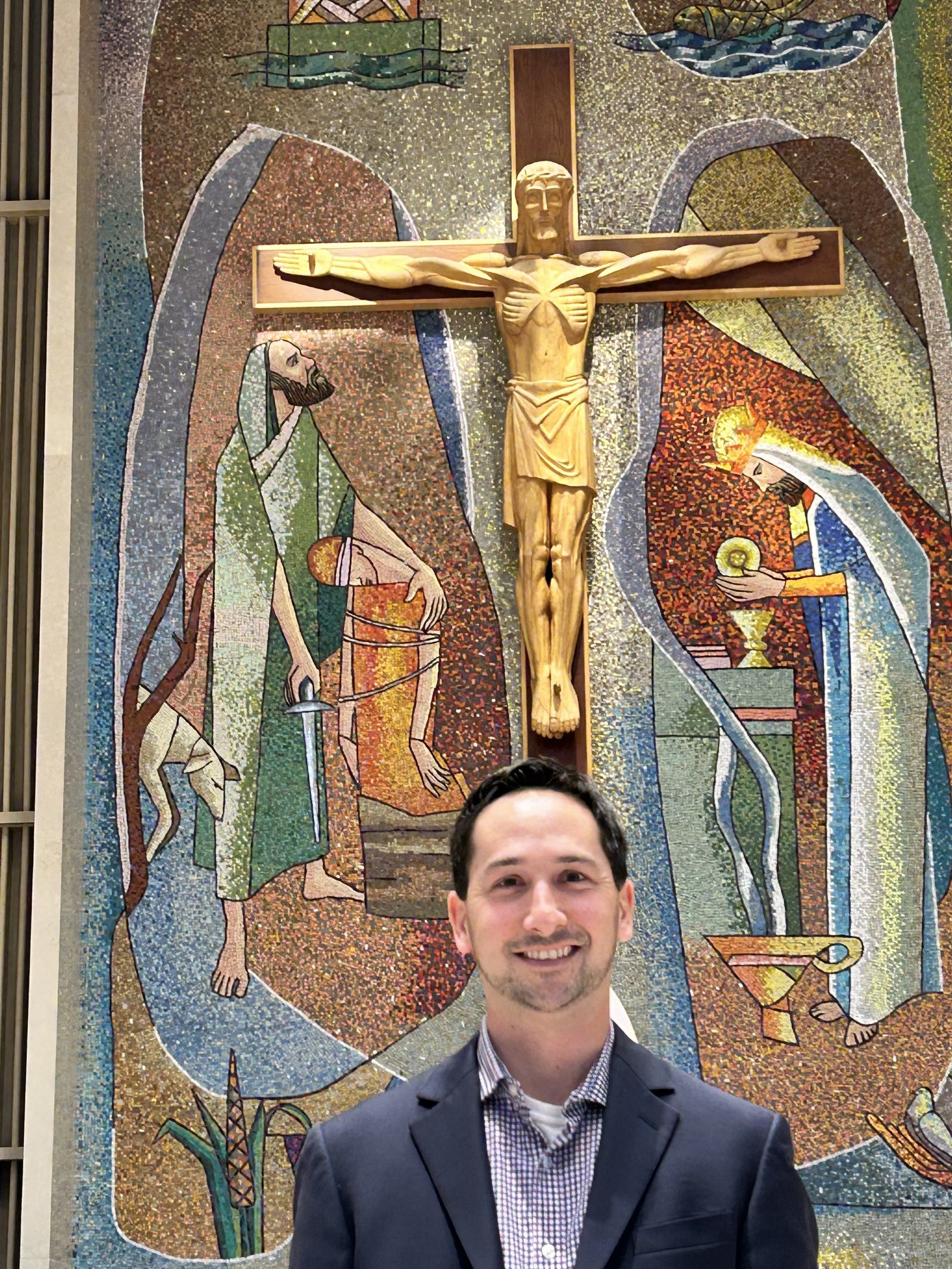
This hybrid model of volunteers and professional singers and musicians is what makes Holy Name special, Gauvin said. It can’t happen without the support of parishioners, who give their time to sing week after week, and all the work and preparation that goes with it, he said.
“It not only has to fit the liturgy, but it must fit the moment in the liturgy. That’s the most important component of what we do. Msgr. Zenz and I work hard to try and make it cohesive and in the spirit of whatever the celebration is that day," Gauvin said. "Then there’s what we call the pastoral considerations. Is this going to be effective for the congregation? Is it going to work well for the musicians? Is it going to speak to them? Is it going to challenge them? That gets to a more personal level. Then there’s the music itself. Is this a good piece of music? Is the text supporting the lectionary? Within these guidelines, there is a lot of flexibility."
Gauvin believes the liturgies are at the heart of parish life and that the most visible people in those liturgies are the priest and the music director: the preaching and the music.
“From day one, Msgr. Zenz and I have had a good connection," Gauvin said. "He has a way of challenging you in a really inspiring way that pushes you to do something good and meaningful."
Copy Permalink
Sacred music

